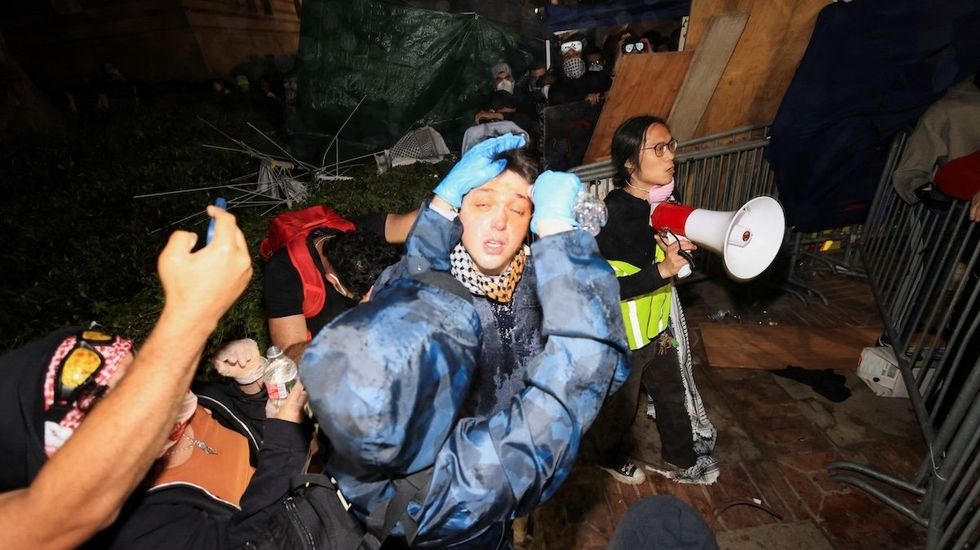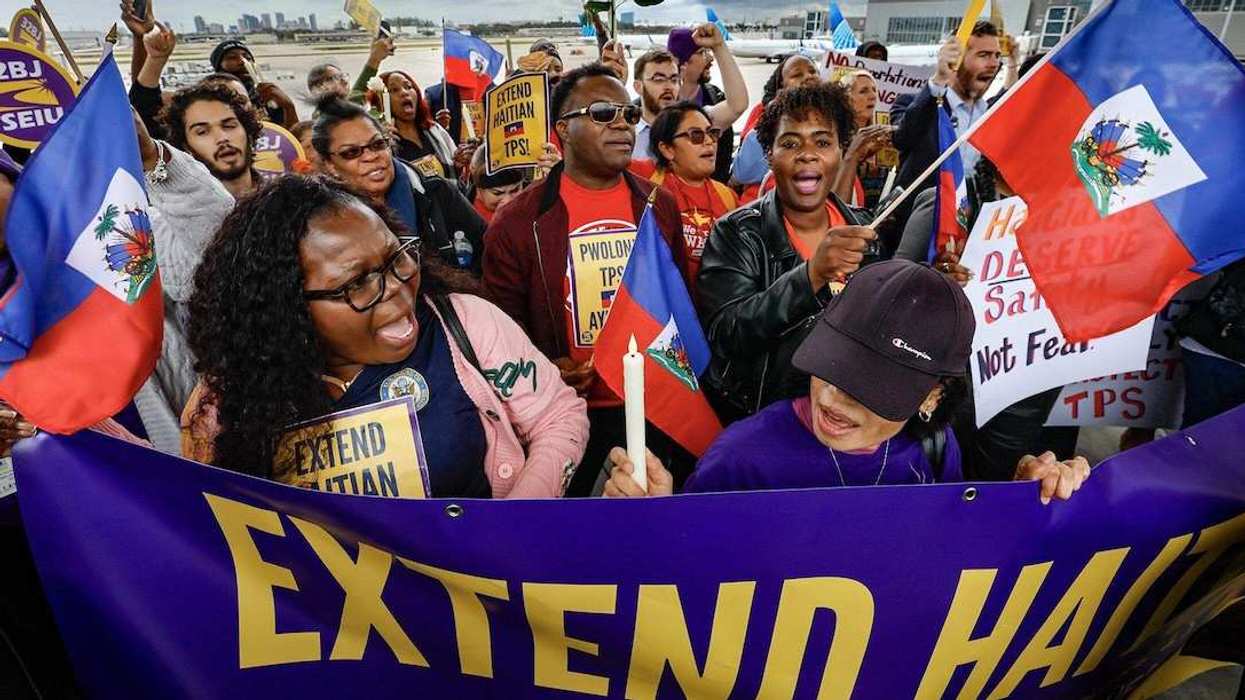Last night, hundreds of New York City Police officers entered Columbia University in riot gear, one night after students occupied a building on campus and 13 days after students pitched an encampment that threw kerosene on a student movement against the war in Gaza on college campuses nationwide.
The police came in droves through the campus gates and directly through the windows of the building that student protesters had barricaded themselves in on Monday. They swept the encampment and the occupied building, detaining protesters with zip ties. Students still on campus were told to go to their dorms or leave the premises. I found myself pushed further and further away from my school, and I watched from beyond the barricades as dozens were arrested and marched onto NYPD detainment buses.
The crackdown at Columbia came alongside chaos at other campuses. There was a round of arrests at City College in Harlem late Tuesday, and police were responding this morning to clashes between pro-Palestinian and counter-protesters at UCLA. On Monday, demonstrators at The New School took over Parsons School of Design. Meanwhile, police cleared an encampment at Yale that protesters have vowed to reoccupy, and an NYU student has reportedly chained themself to a bench and begun a hunger strike, vowing to continue until the demands of student protesters are met.
Nationwide, more than 1,000 students have been taken into police custody since the original encampment began at Columbia on April 18.
 Protesters in support of Palestinians in Gaza at UCLA help one another get their eyes rinsed at an encampment on May 1, 2024. REUTERS/David Swanson
Protesters in support of Palestinians in Gaza at UCLA help one another get their eyes rinsed at an encampment on May 1, 2024. REUTERS/David Swanson
What are the protesters’ demands? The movement aims to isolate and put pressure on Israel to stop its bombing campaign in Gaza by forcing universities to divest from companies with ties to the Jewish state or that profit from the war. While protests on US campuses are being driven by the war in Gaza, their impact is transcending the conflict. Some of the demonstrations have featured antisemitic and intimidating chants and posters, while politicians on both sides of the aisle have made visits to college campuses to either support or condemn them.
Schools are striving to restore order before commencement season to avoid becoming the next University of Southern California, which canceled its main graduation ceremony after arresting more than 90 students last week. Columbia has asked the NYPD to stay on campus until at least May 17 to ensure there are no more demonstrations until after graduation.
But protesters aren’t concerned about graduation ceremonies. At Columbia, a new chant “no commencement until divestment” was heard yesterday from the occupied building. Ali, a senior at The New School who was involved in the takeover of Parsons and requested anonymity, laughed when I asked if he was worried about missing graduation. “We are all pushing as hard as we can to get divestment before the end of school. That’s the priority,” he said.
He was optimistic they would succeed, at least on his campus. But the overarching goal of getting the largest university endowments to divest from Israel is certainly not going to happen before students go home for summer.
So what comes next?
Hamilton Hall, the building Columbia protesters occupied Monday night, was also taken over exactly 56 years ago to the day, in the spring of 1968, during the Vietnam War. Demonstrators back then went home for the summer, only to resurface in the thousands at the Democratic National Convention in Chicago, and, long story short: Things got ugly. The gathering erupted into violence, leading to the activation of the National Guard and the arrest of hundreds of protesters.
This August, the DNC is also in Chicago, so could history repeat itself? When I asked students whether the movement would shift from university endowments to political events, the question took them off-guard.
“People aren’t really talking about what this is going to look like during the 2024 election," said Ali. “But what I do know is that people in this movement aren’t committed to voting for a certain party.” His statement echoed the disillusionment with political parties that I have heard again and again from student protesters.
“I don’t know how Joe Biden doesn’t realize he’s lost us,” said Julia Ye, a senior at NYU.
Cornel West and Jill Stein, two left-leaning third-party candidates, have both visited the Columbia University encampment in hopes of picking up the liberal youth vote. But it remains to be seen whether students will vote for either of them, especially if doing so makes it more likely that Donald Trump wins.
What’s clear is that students are confident the movement isn’t going on vacation. “Right now, all our focus is on university divestment,” said Ye, “but this energy isn’t going anywhere. It will just take a different shape over the summer.”
Students reported that throughout this year of university protests, they have seen their activist networks strengthen and expand, especially between schools. They have coordinated sending excess food donations between encampments in New York City, live-streamed the programming from different encampments across the country on their own, and been catalyzed by each other’s encounters with law enforcement.
“It was cool to see us moving in sync with the Columbia protests yesterday, even if it wasn’t officially organized,” said Gabriella, another senior at The New School who requested anonymity. “We are all watching each other on social media. We all want the same things. This movement is exploding, whether one person is calling for it to or not.”



















